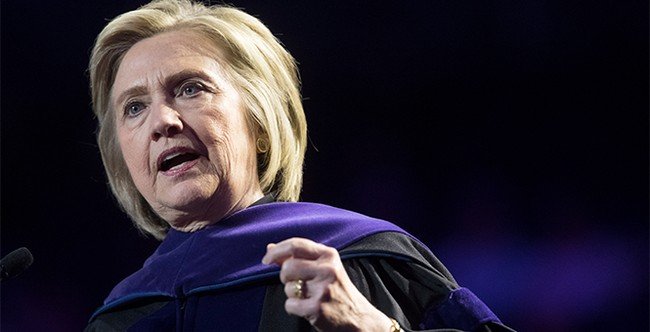WASHINGTON — U.S. Senate Republicans and President-elect Donald Trump met behind closed doors Wednesday night to plan how to make sweeping changes to immigration, energy and tax policies, though they did not appear to make significant progress.
Republicans want to apply the complicated budget reconciliation process to approve legislation without relying on Democrats for votes in the Senate, where the 60-vote legislative filibuster typically forces bipartisanship. However, the Republican Party has not yet reached an agreement on whether its proposals should be included in one immense package or two bills, a decision necessary to launch the multi-phase effort.
Leaders also haven’t agreed on exactly what changes need to be made, which will likely require months of talks between centrist and far-right party members, almost all of whom must support the final version if it is to pass Congress.
Trump said after the meeting that there was “great unity” among Republicans, despite mighty disagreements between the House and Senate on whether to try to pass all the policies in one bill or split them into two packages.
“Whether it’s one or two bills, it’s going to get done one way or another. I think there’s a lot of talk about two and a lot of talk about one, but it doesn’t matter. The end result is the same,” Trump said. “We’re going to do something that’s going to cut taxes and create a lot of jobs and do all the other things you know about.”
One bill or two?
GOP senators leaving the two-hour meeting on Capitol Hill said no final decisions had been made but GOP leaders would continue to talk.
Senate Majority Leader John Thune, a Republican from South Dakota, said lawmakers in that chamber are “united behind (Trump’s) agenda, which is to secure the border, rebuild the military, ensure this country’s energy dominance, strengthen the economy… and avoid and prevention, this means a huge tax boost if we don’t act to extend the 2017 Trump tax cuts.”
Thune would not say whether GOP senators were successful in persuading Trump to support their two-bill strategy.
“We are all aligned in getting an outcome, and the process arguments that we have here are certainly less important to people across the country than achieving the goals that I just mentioned,” Thune said.
But he said there is “great interest” among Senate Republicans in quickly introducing legislation on borders, national security and energy.
“It’s an ongoing conversation, but ultimately we all want the same result and that’s what we’ll focus on,” Thune said.
A budget resolution is needed
The budget reconciliation process requires the House and Senate to adopt a budget resolution containing reconciliation instructions before they can bring the reconciliation bill to a vote.
That means GOP leaders in the House and Senate will have to agree sooner or later on which committees will receive reconciliation instructions and what they will include.
Senate Republican Policy Committee Chairwoman Shelley Moore Capito, D-Va., said no final decisions were made during the meeting, but GOP senators presented their arguments to Trump for moving the policy changes to two different bills.
“He heard from us and our leader that the two-law strategy is very much alive here and that we are still very interested in it,” she said.
Capito, who moderated the conversation and led the meeting, said she was able to “reach out to the president” at several points to discuss policy, but did not detail what exactly she might have pressed him about.
Capito said she expects Thune and House Speaker Mike Johnson, D-Los., to meet with Trump at some point to make a final decision on one or two bills.
“Fun” meeting
Missouri Republican Sen. Eric Schmitt said the border and energy are two of his top policy priorities, though he didn’t go into detail on what exactly will change on those two issues.
Sen. Joni Ernst of Iowa said the meeting with Trump was “fun” and that Republicans had a chance to ask the up-to-date president questions.
“There is so much energy here,” she said, adding that in the event of reconciliation, she would rather have two bills than one.
Sen. James Lankford of Oklahoma, who was the lead Republican on the bipartisan deal on the border security bill that Trump he finally refueled in 2024, he said that during the meeting, Trump expressed his will for close cooperation between the White House and Congress.
Lankford added that Trump is “really open” to various reconciliation strategies.
“I think (with) two bills you’ll get things done faster,” he said. “We can start moving faster rather than waiting until May or June to try to get something done.”
Sen. Markwayne Mullin of Oklahoma said GOP senators are leaning toward the two reconciliation bills, “but at the same time, Leader Thune has made it very clear that he will do what the president wants us to do.”
Last updated at 21:18, January 8, 2025


